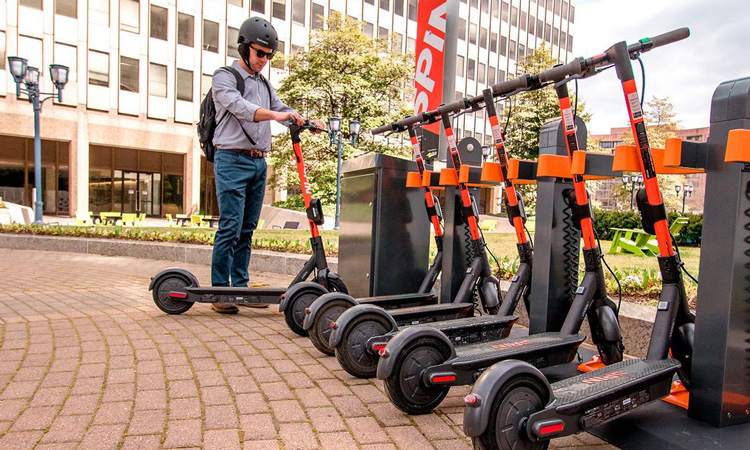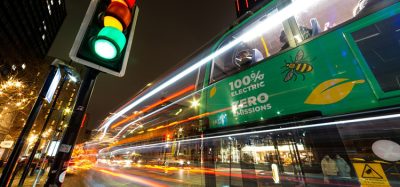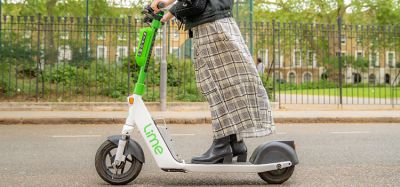Spin sets sustainability goal to become carbon negative by 2025
- Like
- Digg
- Del
- Tumblr
- VKontakte
- Buffer
- Love This
- Odnoklassniki
- Meneame
- Blogger
- Amazon
- Yahoo Mail
- Gmail
- AOL
- Newsvine
- HackerNews
- Evernote
- MySpace
- Mail.ru
- Viadeo
- Line
- Comments
- Yummly
- SMS
- Viber
- Telegram
- Subscribe
- Skype
- Facebook Messenger
- Kakao
- LiveJournal
- Yammer
- Edgar
- Fintel
- Mix
- Instapaper
- Copy Link
Posted: 5 August 2020 | Sam Mehmet (Intelligent Transport)
The plans entail changing the way Spin currently conducts business – from the carbon produced when manufacturing electric scooters to ensuring the sources of power used to recharge scooters every day are renewable.


Spin, the micromobility unit of Ford Motor Company, has announced its plan to achieve net negative emissions – eliminating more carbon than the company produces – by 2025.
“Our sustainability goal is part of the commitments we have made to many cities where we operate and we plan to keep them,” said Derrick Ko, CEO and Co-Founder of Spin. “From New York and Chicago to Paris and London, cities around the world are setting ambitious goals to combat climate change. We will rise to the occasion and transform the way we do business.”
Spin is conducting an ongoing internal audit of its carbon emissions across each aspect of the business in line with Greenhouse Gas Protocol. This “carbon accounting” process is said to provide a baseline understanding of current emissions performance as a company in manufacturing, operations, and power, and aims to help identify the greatest opportunities for improvement.
“We have to hold ourselves accountable for tracking the carbon emitted in providing our service. This is made easier by the fact that we employ a majority of the people deploying, collecting and recharging our scooters, using Spin vans and warehouses. Operators relying on all gig workforces – using personal vehicles and charging at home - face a difficult challenge in accounting for these emissions,” said Shivam Vohra, Senior Program Manager of Sustainability Initiatives at Spin. “If we are truly offering a more sustainable mode of transportation to cities, we should be eliminating more carbon than we produce.”
The company has committed to four goals:
- Transition operations to 100 per cent plug-in hybrid and battery electric vehicles
- Transition power for recharging to 100 per cent renewable energy
- Integrate rider mode shift as a core company sustainability metric
- Achieve a minimum 24-month lifetime for Spin vehicles and 100 per cent landfill diversion
“A critical aspect of achieving our carbon negative goal is accelerating mode shift. Spin looks forward to continuing to work with cities to create streets that are better designed for mobility outside of cars,” said Kay Cheng, Director of Policy Initiatives at Spin.








